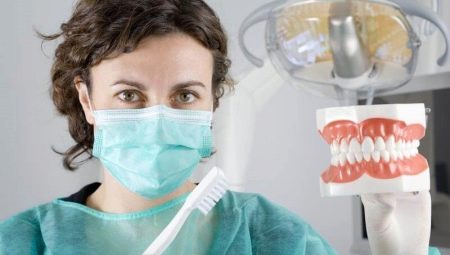Dentist is one of the most popular, highly paid and status professions in the medical community. At the same time, dentists can work either as specialists in a wide profile, or have a narrow specialization. For example, today dental hygienists are in great demand among the population. We’ll talk in more detail about what a specialist in this profession does.
Features
A dental hygienist is a relatively “young” profession that appeared in our country only about 20 years ago. However, in other countries of the world, it has long been widespread. Such a dentist acts primarily not to cure diseases that have already arisen, but to prevent various ailments from appearing in advance. The hygienist takes care of clean teeth and also protects patients from the risk of tooth decay.
If you rely on the experience of Western countries, where dental hygienists have been researching in this direction for a long time, we can conclude that turning to a hygienist is more profitable from an economic point of view, since preventive measures cost patients much less than direct treatment.
Statistics show that the total number of diseases of the oral cavity with regular visits to such a doctor is reduced by 70%.

A dental hygienist is a doctor who can work both in ordinary polyclinics and hospitals, as well as in private institutions. In addition, such doctors often practice medicine on their own and open their own rooms (for example, work as individual entrepreneurs).And also in many dentists, a doctor who cares about the oral hygiene of patients works with orthodontists and surgeons. Thus, in one medical institution you can get the most comprehensive care.
It should be noted that such a specialist should be well educated and have a large amount of knowledge. In addition to dentistry, he must understand in detail the human anatomy and physiology, as well as possess other special medical knowledge (for example, know the mechanism of action of certain drugs).
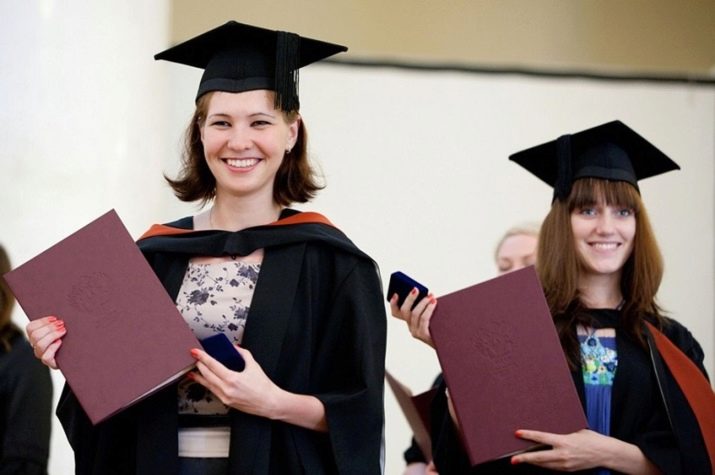
Responsibilities
In the course of his professional activities, the dental hygienist carries out a large number of medical procedures. So, the duties of a dental hygienist include:
- various preventive measures;
- instructing patients on hygiene procedures;
- first aid if necessary;
- implementation of diagnostic and treatment work;
- ability to work with medical equipment;
- possess pharmacological knowledge;
- create individual hygiene programs for each patient;
- talk about different methods of brushing your teeth;
- bring seals in a decent condition (for example, grind them);
- strengthen tooth enamel (calcium, fluoride and other chemicals are often used for these purposes);
- treat periodontal disease;
- eliminate tartar;
- partial adjustment of nutrition.
Thus, the hygienist provides his clients with a wide range of medical services.
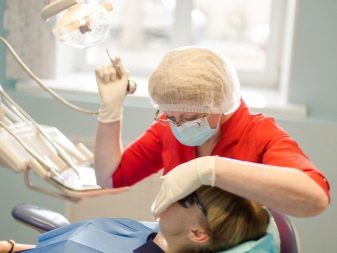
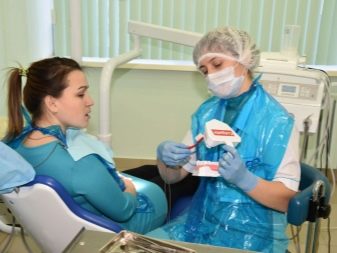
Training
To start working in the specialty of a dental hygienist, you must complete the appropriate educational institution. This can be either a university or a medical college. When searching for a specific educational institution, you should pay attention to such areas of training as “Dentistry” and “Preventive Dentistry”. The provision of medical services without a diploma of special education is prohibited. Such specialists are responsible for their activities, as they have a direct impact on human health.
But before that, you need to finish 11 classes of high school, and also pass the profile examinations for the exam, namely - Russian, mathematics, biology and chemistry.
It should be noted that getting a higher education in a medical specialty is a rather lengthy processwith. You will have to undergo training for several years (from 5), and then spend another 2 years on residency. Consider also the fact that training at the dentist can be carried out only in full-time.
In the process of choosing an educational institution and admission, preference should be given to metropolitan large and prestigious universities. If, for some reason, you cannot study in such institutions, then any other medical universities of medium and small cities will do.
In addition, after graduating from a higher educational institution and in the process of work, one should not forget that technologies (including medical) do not stand still. That is why every self-respecting specialist continues to improve his qualifications and improve his competence by attending a variety of courses, forums, conferences, trainings, master classes and so on.
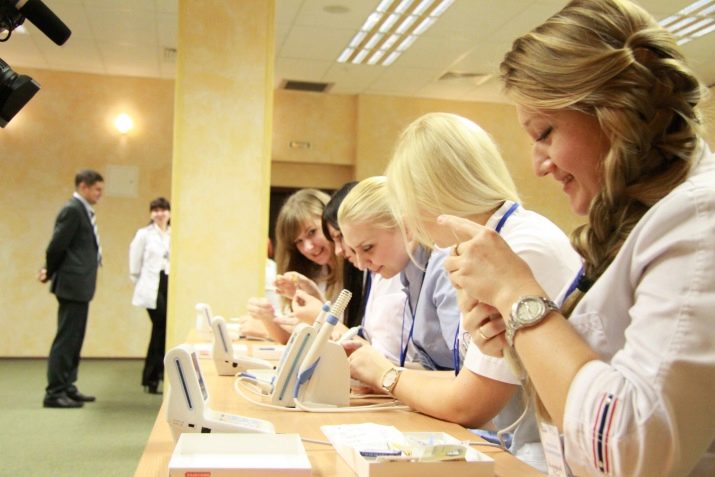
Career
A dental hygienist's career can develop in a variety of ways. As mentioned above, some specialists choose to work in government institutions, while others go to private clinics or open their own offices. Wherein it should be borne in mind that private practitioners earn many times more than those who work in public institutions. This fact must be taken into account when planning your financial situation. In general, the salary of such a medical specialist can vary from 15 to 100 and more than thousand rubles per month.
However, traditionally, the career path of any young specialist begins with joining a state clinic. The thing is that only in this way you can get work experience, as well as build a customer base. If you have worked in a state clinic for several years by profession and become accustomed to the profession, you can begin to engage in private practice.
As you can see, a dental hygienist is an important and necessary profession for society. This specialist provides not only medical assistance, but also carries out the most important preventive functions.

